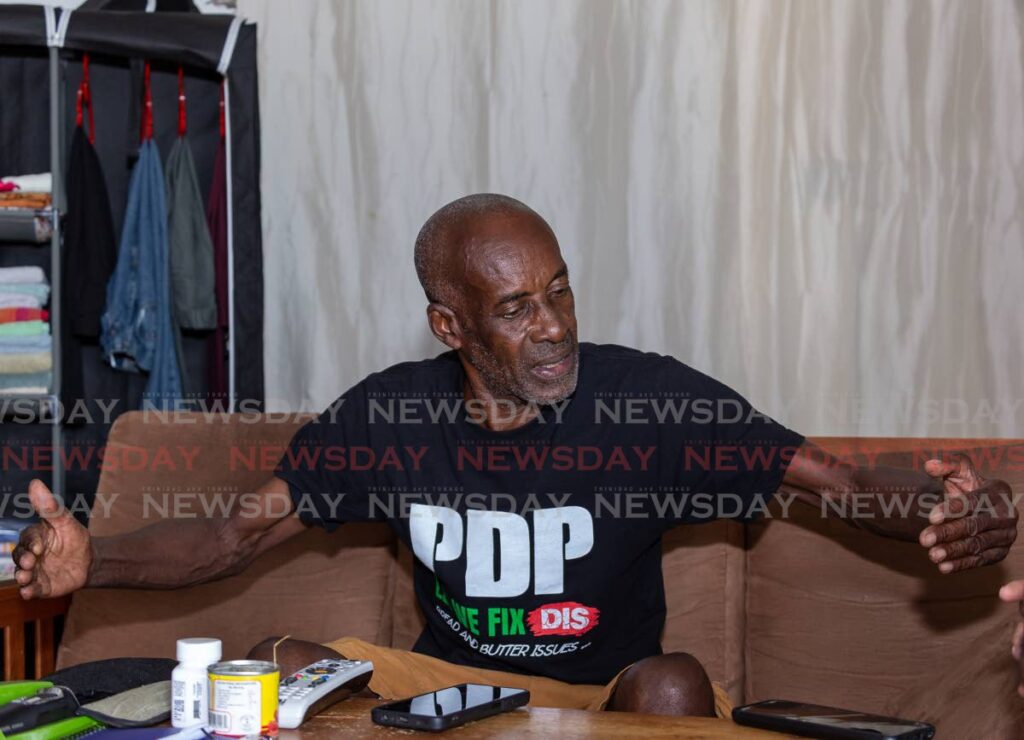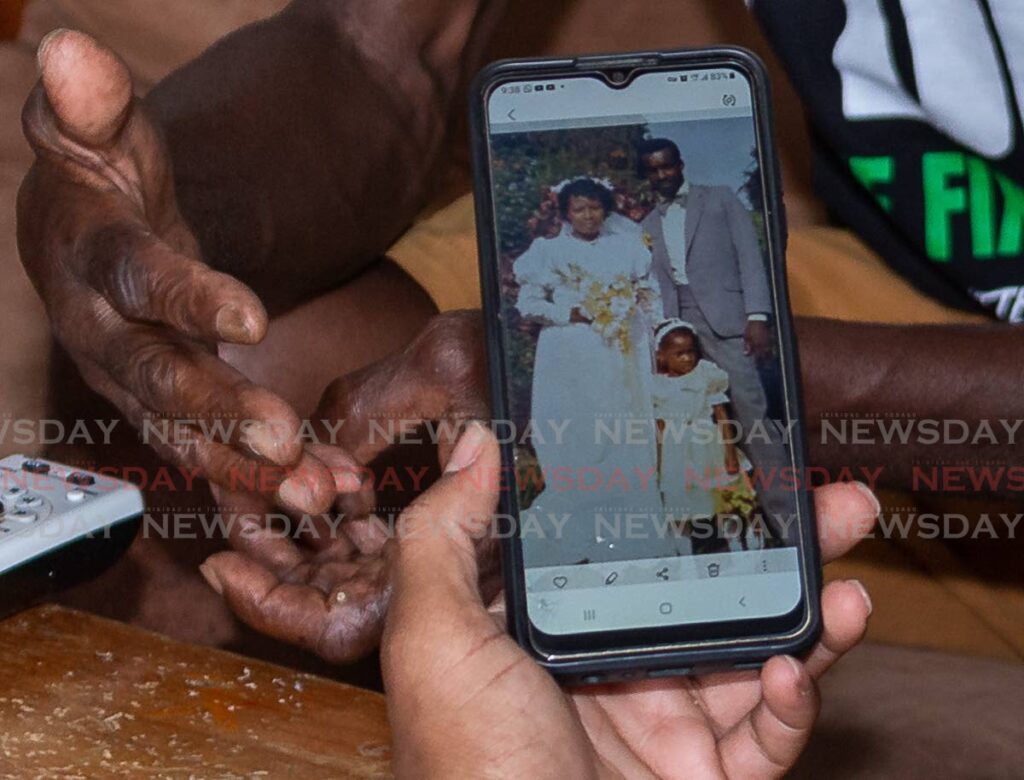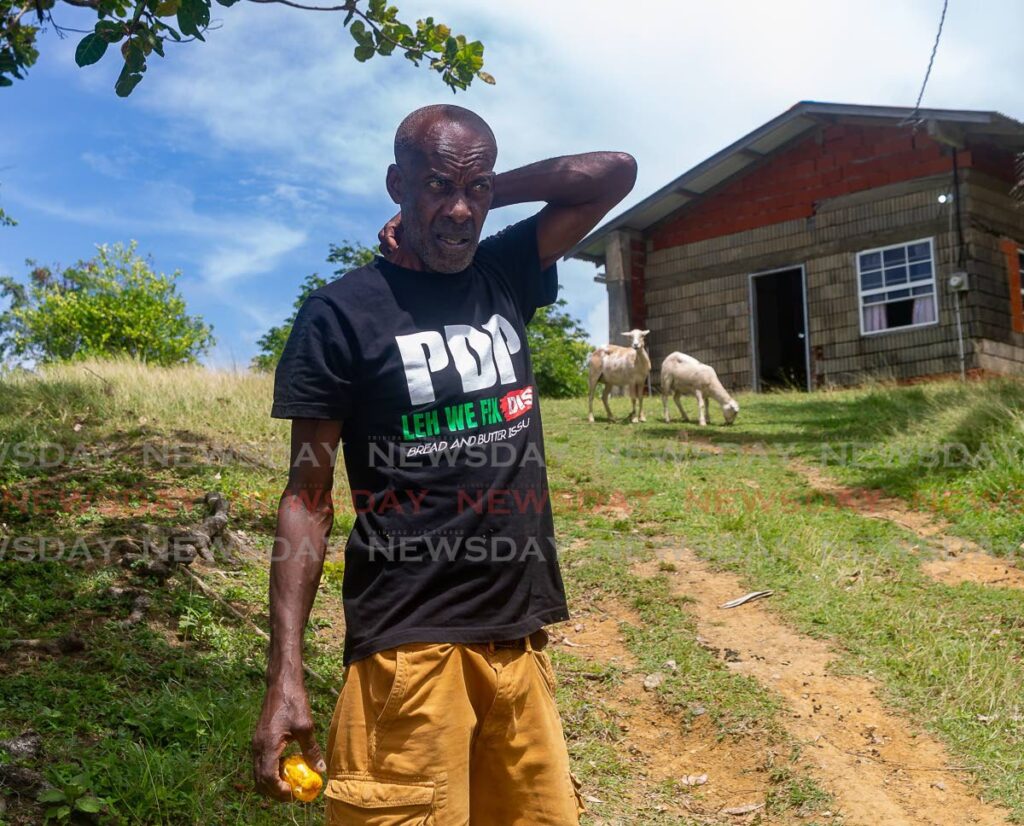Overcoming tragedy: Man recalls 2004 disaster that nearly claimed his entire family

EIGHTEEN years after a landslide almost wiped out his entire family in King’s Bay, Tobagonian Joseph Ferguson, 68, said death no longer affects him.
Ferguson lost his wife Shirley Nimblett-Ferguson, 43, and 16-year-old daughter Kathy-Ann Ferguson in a massive landslide at King’s Bay, Delaford, on November 12, 2004.
The landslide also claimed the life of another villager and left the road impassable for hours.
In an interview with Newsday at his Richmond Point home on Friday, Ferguson, who lives alone in a small concrete house, said he still misses his wife and child.
“It didn’t have nobody I love more in this world than that woman and that daughter,” he said.
Ferguson, who had five children when the tragedy occurred, said the incident scattered his family and ruined him financially.

Despite the incident, the former THA employee said he found the will to live and persevere through his surviving children and the support of good samaritans. He said his children – including one from a later relationship – are all doing well professionally and academically.
Recalling the day his life changed forever, Ferguson said rain had been falling for hours and water began seeping into the house, which was built at the foot of the mountain. Ferguson said two generations of his family had lived there without any mishaps.
A short distance away was a guesthouse owned by a German, who had hired Ferguson as his caretaker.
“My wife say, ‘Lewwe go up in the guest house.’
“By the time I go up in the guesthouse, the hardest sound I ever hear in my life. Like I in a war. Is trees coming. Hundred and change a trees coming down the hill.”
He said he was leading his wife and five children through a corridor to go to the back of the guesthouse when calamity struck.
“That landslide come and hit off the whole house. When I look around I eh see nobody at all – not even one of meh children. I start hearing bawling under rubble.”
Ferguson said the area was like a swamp. He began screaming their names and heard one reply.
“I eh know how I strong so. I lift up rubble and get out that child.”
“I carry out the first one. I come look around, get a next one, carry out a third done. I find a fourth one – he was standing by a tree like an island surround with water. I throw (myself) across. The water so heavy it carry me past the boy. I come back – tired. I throw again and get him and bring him ashore.”
Ferguson said the landslide was so devastating that neighbours could not get close to help until well over an hour later, when the water started to subside.
But his daughter had been killed instantly. His wife was eventually found alive, but had been buried up to her face. She spent around three months in the Port of Spain General Hospital before she died.
His surviving children Kwesi-Ann Ferguson, eight; Kurlon Ferguson, 11; Kershon Ferguson, 17; and. Kale-Ann Ferguson, 23, were all badly injured. They were airlifted to the hospital as no ambulance could get close.
“The last daughter spent about four months in Mt Hope. They planned to take off she foot. The big one – the same thing. She spent about four months in hospital. Everybody was hospitalised.”
He said the funerals of his wife and daughter felt like a hospital ward.
Ferguson does not know how he was able to cope with the grief.
“Well, boy, is the worst I ever see. Yuh know, no counsellor ever come to me to help counsel me? Nobody at all...
“It had people woulda go crazy, but life have to go on.”
Ferguson said his only solace was that his daughter was young and had not been corrupted by the world, and his wife, because she was conscious before she died, would have been able to make peace with God.
The incident left his family scattered.
“One living here, one living down dey, that one by meh cousin.”
Ferguson said it was a woman from Belle Garden who lived in the US who helped him get them back under one roof. She was a stranger to him but when she heard the news, she returned to Tobago to help, but was unable to find him.
He recalled being in a taxi heading to Scarborough when the driver stopped to pick up a female passenger, who began talking about the tragedy and asking if they knew him. It was the same woman.
They went to lunch and talked for hours.
“She take charge of all meh children. We collect the children and I live by the woman for three years.”
Ferguson said she never took a cent from him, and his children still treat her like their mother.
“I come to the understanding, this tragedy could have been worse. Praise God.
“When that woman help me pull them back and have them around me, I feel a joy. But I was still missing the wife and child – all now I still missing them. Is the most pressure I ever go through.”
He said he received a house from the Tobago House of Assembly in Roxborough around 2005, but was not happy with how he was treated.
“When they give me the house, they furnish it and call everybody out...It was a three-room house, down to crib – and I wasn’t making children…
“They take back the key the same day. It was a Tuesday and they tell me come for the key on a Thursday. When I go back and receive the key and get back to the house – empty! Not even a bed to lie down.”

Ferguson said the landslide had left him in financial trouble, as he had taken a loan to build the King’s Bay home.
“It take me till I resign to pay off – I was in real debt.”
He also had to buy medication and going back and forth from Tobago to Trinidad to see about his injured children. He eventually bought a vehicle to make hospital visits easier for his children.
He said it was then that financial support from the community ended.
“They say, ‘Eh heh, yuh have money. No help,’” he said, chuckling. But he remains grateful for all the support he received.
Even though he has retired, Ferguson remains physically active, planting his garden and taking care of his sheep and pigs. He said tomatoes and peas helped him build and furnish his house in Richmond. His children live in the house given to him by the THA.
“Although I old, I born real strong, yuh know. Me does operate just as if I a young man.”
He wakes up around 6am to begin work and one of his sons, who lives nearby, comes in the afternoon to help him.
His daily routine consists of farming and watching sports on TV.
“The family, I does miss them. I lose a brother about two months now. I feel it, eh, but I overs death now. I understand what is death. I accustomed to death now. Nothing doesn’t humbug me.”


Comments
"Overcoming tragedy: Man recalls 2004 disaster that nearly claimed his entire family"